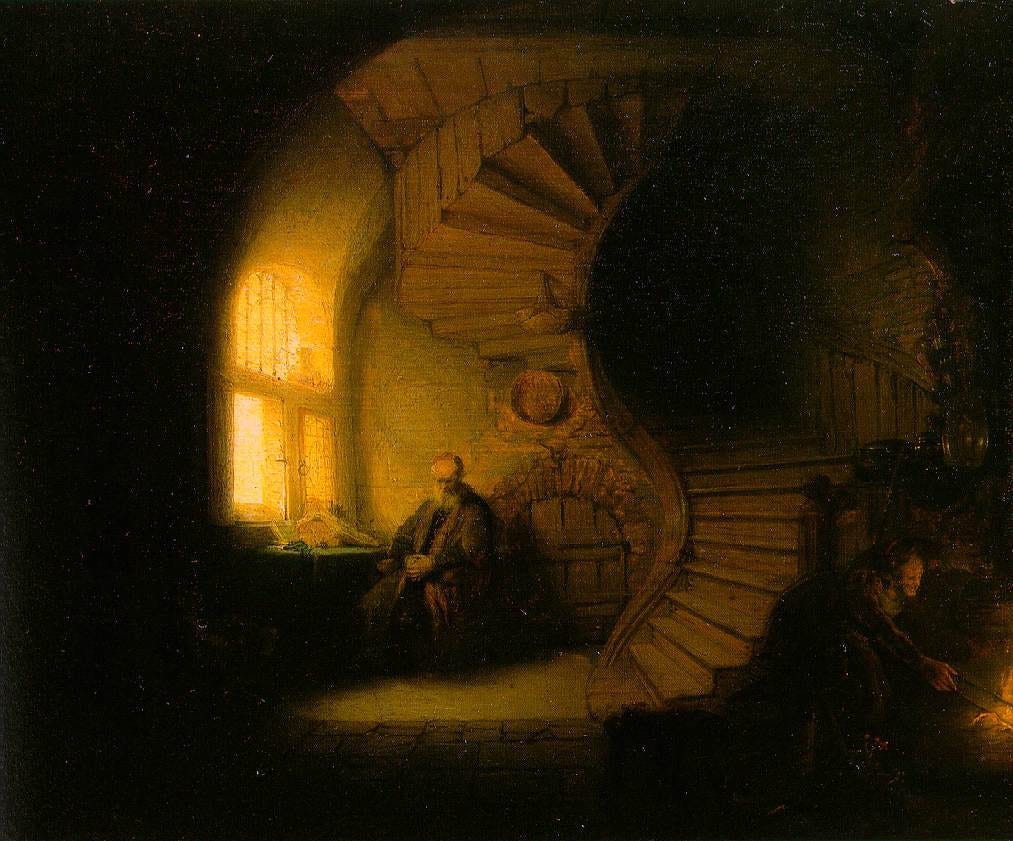Thursday Recs: What Would You Do With Eternity?
Bill Murray, Marilynne Robinson, & music that hypnotizes
Welcome to a new type of email, where I’ll share the best of what I read, see, and listen to every week.
What would you do with eternity?
That’s the question that lies at the heart of a very silly movie that means a lot to me (and to many people out there): Bill Murray’s Groundhog Day of 1993.
A masterpiece of wry existentialism, the movie puts its egotistical hero through endless repetitions of the same day, asking him over and over: what will you do with endless time?
His form of eternity is fundamentally lonely. Only he knows that time has halted. The progression of days, the hope we feel looking forward to tomorrow, the connection we feel as heirs of yesterday’s choices, all that is broken for him.
As Bill Murray’s character discovers, as he moves through the phases of elation (I can do anything!”), despair (Life beyond time is not worth living), and hope (I’ll never be perfect, but I can spend forever trying to get better) we were not made for eternity. At least not in this life.
Here is my favorite scene in the movie, a cry for help in which he demonstrates supernatural ability (omniscience, foresight) but only in order to be seen and understood, to spend at least one day communicating about his awful form of eternity with a mortal—or to be more specific, the woman he has grown to love.
IMAGES
WORDS
The question of time—how eternity interacts with history; how the infinite can be grasped by the finite—also lies at the heart of Marilynne Robinson’s recent essay in Harper’s. It explores the important differences between the Creation account in Genesis, and the earlier myths of the Near East. In contrasting the tale of the Flood recorded in the Epic of Gilgamesh with the deluge of Noah, she highlights ways in which the Bible narrative rejects the Bablyonian ideas of the divine and the human, and presents a radically different understanding.
The two Creation narratives of Genesis place the universe in history, and offer no suggestion of what “preceded” it, she writes. Time had a beginning, and it will have an end.
The Creation story ex nihilo presents but does not pretend to explain “the complexity and mystery of time,” she writes, as if time “were made indeterminate to accommodate simultaneities—our entangled and consequential lives, our deeper participation in Being itself, the eternal God.”
Robinson has long been one of my favorite essayists. I love following the pattern of her thought, which, while clear, does not make many accommodations. When reading her writing, I often have the feeling that I am encountering handwritten prose: it has the leanness, the linearity, the insularity and sinuousness of a pen on a page. (I have no idea if she does, in fact, draft by hand, but it wouldn’t surprise me if she did.)
I love this way she characterizes the Bible, which as anyone who has read it knows contains paradoxes, explicit and implicit, on every page.
“The Bible does not exist to explain away mysteries and complexities but to reveal and explore them with a respect and restraint that resists conclusion.”
“This irresolvable question regarding the origin and meaning of human actions persists in crucial contexts throughout both Testaments. … It is the centrality of humankind, exceptional among the myths of neighboring cultures, that draws down this order of attention to the great mystery of the origins and meaning of individual actions, and the meaning of individual lives.”
MUSIC
Let’s finish this theme of eternity/finitude with two pieces of music I love that, from their very first notes, seem to freeze time.
The first, by Kid A, has been running through my head all week. The opening notes of “Everything In Its Right Place” are one of the most powerful statements I know of in popular music. I am instantly hypnotized. It sounds like something celestial, and perhaps sinister, coming into our world.
The second, composed by Schubert and interpreted in its most majestic form by Sviatoslav Richter, is a late sonata by the dying master. In its first movement (a full 24 minutes of the recording below) you experience the infinite meeting the finite. If at all possible, try to listen to this piece at least once in your life without any distractions, any texting or reading, and see how you feel.



